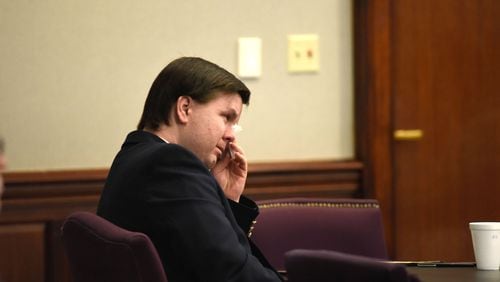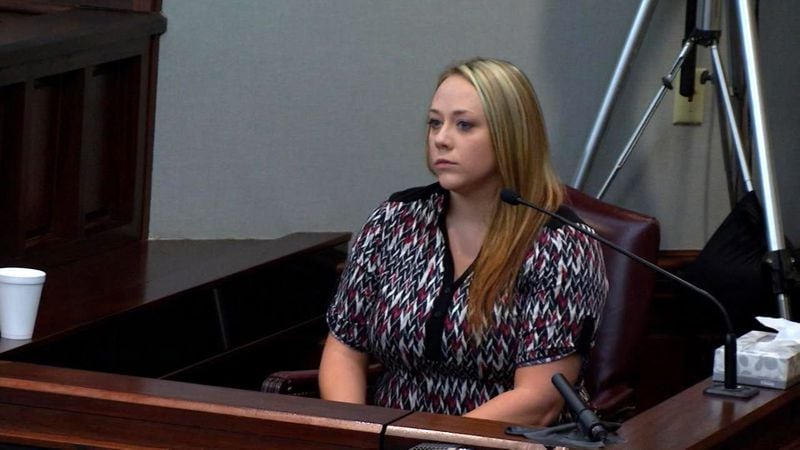2:30 p.m. update: The jury asks to review the Home Depot security video of Justin Ross Harris arriving back at work after lunch on the day he left his son in the car. The judge ordered the video shown on the big screen set up in the courtroom. As the video played, several jurors leaned forward and watched intently.
Police asserted that Harris could easily have seen his little boy in the SUV when he went to the vehicle to put light bulbs on the front seat after lunch that day. (He had purchased the light bulbs while out to lunch with co-workers.) The surveillance video shows that, when he opens the car door, Harris's line of sight remains above the roof line.
* * *
After hearing 22 days of testimony from 70 witnesses, the jury in the Justin Ross Harris case has been deliberating for a day and a half and may well come back with a verdict today. Court will be in recess tomorrow for Veterans Day: will jurors try to wrap it up before the three-day weekend?
Harris is charged with malice murder in the hot-car death of his 22-month-old son, Cooper. The jury returned for its third day of deliberations at about 8:30 a.m. today. Here are five points that they are likely to consider.
1. Ross Harris's double life. A theme that ran through the prosecution case from beginning to end was that Harris led a double life: he was the loving father, friendly co-worker and happy-go-lucky friend. And he was the insatiable philanderer who spent most of his time on sex sites and anonymous messaging apps trolling for people to sleep with. Prosecutor Chuck Boring said Harris was unable to keep these two selves in balance and, as Cooper's death approached, Harris's dark self was beginning to overwhelm his other self.
2. What Harris said, and what he meant. The prosecution made much of a series of texts that Harris sent on the messaging app Whisper in the minutes before he left Cooper in the car. In response to a female stranger who had posted, "I hate being married with kids," Harris replied, "I love my son and all, but we both need escapes." The prosecution said that was proof that Harris planned to kill his child. The defense said the remark was far more benign: a man seeking sex with strangers to escape the routines of ordinary life.
Credit: WSB-TV
Credit: WSB-TV
3. Harris's ex-wife, for the defense. Leanna Taylor testified on her ex-husband's behalf and was unwavering in her assertions that Harris loved their son and would never have deliberately harmed him. She was mostly composed on the stand, withstanding several attempts by the prosecution to get under her skin during cross-examination. But she also ended her testimony with these words about her ex: "He destroyed my life. I'm humiliated. I may never trust anybody again, the way that I did. If I never see him again after this day, that's fine.
4. "Murder is murder is murder." Harris was charged with three counts of murder: malice murder, which accuses him of intentionally killing his son, and two counts of felony murder, which say that someone died while Harris was committing a felony. The charges are different, but the penalties are the same: life in prison, with a minimum of 30 years to serve. Hence, defense attorney Maddox Kilgore's remark to the jury that "murder is murder is murder."
5. Was he crying or faking? Harris's behavior in the hours after Cooper died ignited suspicions among police that this was something other than an accident. Lead investigator Phil Stoddard said he began to believe Harris was play-acting. Cobb police officer Jacquelyn Piper put it this way on the stand: "If you've ever seen 'Anchorman' and you have Will Ferrell shouting 'I'm in a glass case of emotion.' It's that monotoned yelling that seems really forced." The defense ridiculed this line of argument, saying the police had no meter with which to gauge the authenticity of Harris's grief. Kilgore asserted that the police seemed to suspect Harris for everything he did and everything he didn't do.
Return for updates.









